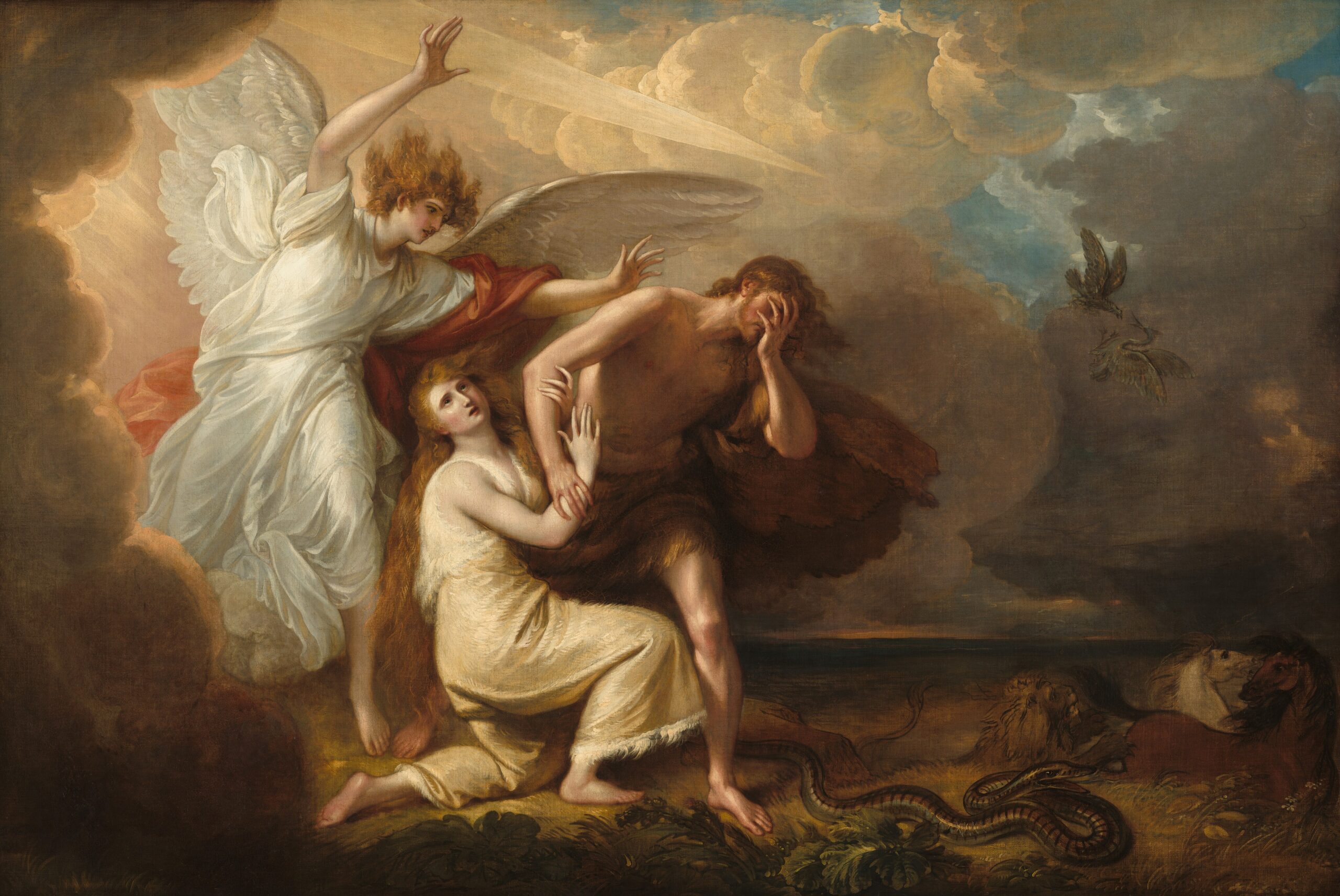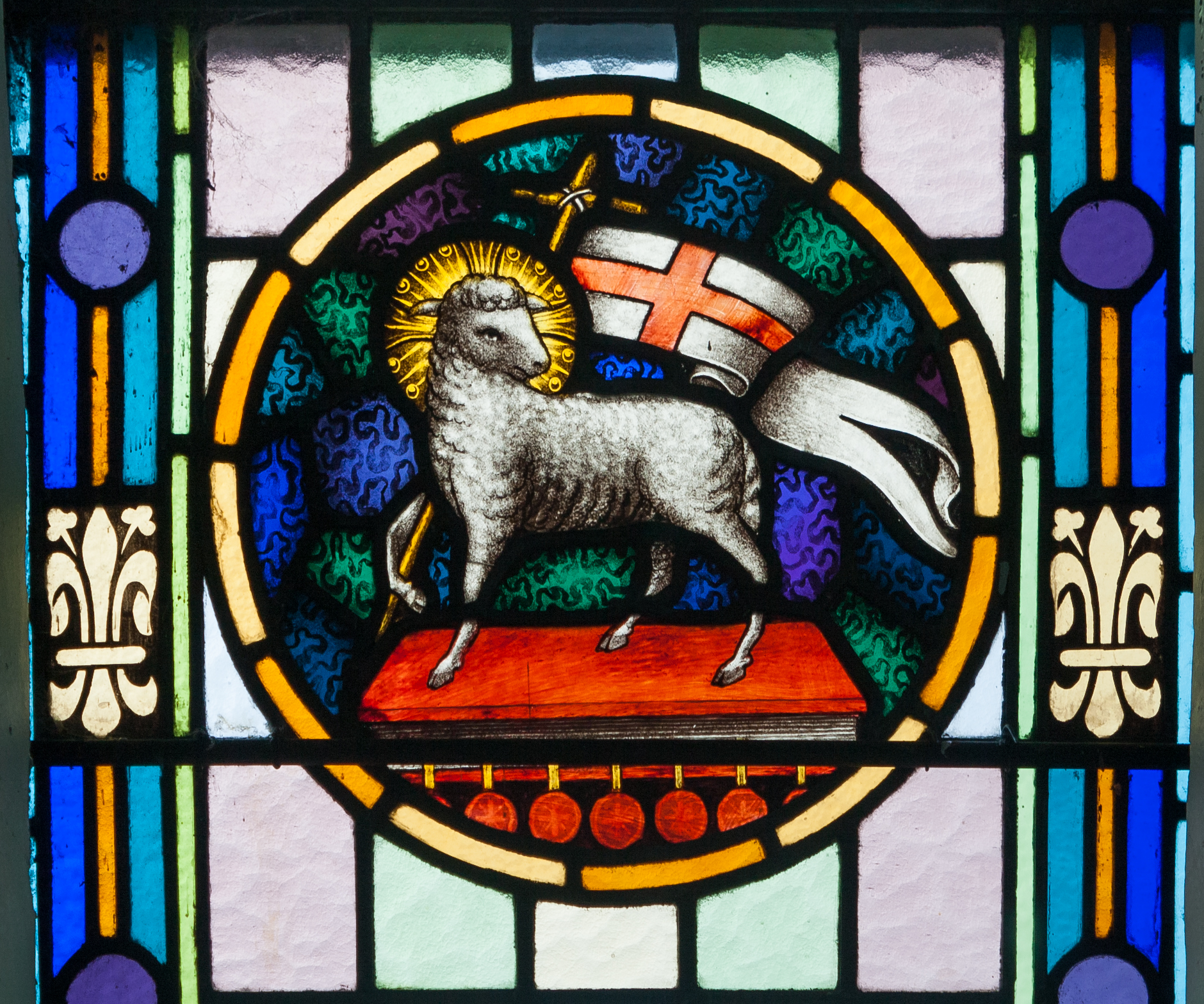What Does it Mean That
Jesus Died for Our Sins?
The Cross is the central sign of the Christian faith. It is not a story of defeat, but the ultimate story of God's saving love. But how exactly does Jesus' death, an event from 2,000 years ago, save all of us?
The answer is a profound mystery that the Church calls the Paschal Mystery: the single, unified event of Jesus' Passion, Death, Resurrection, and Glorification. Let's explore what this means.

1. The Problem: A Broken Relationship
To understand the solution, we first need to understand the problem. Catholic teaching, based on Genesis, explains that God created our first parents (Adam & Eve) in a state of perfect friendship with Him, called "original justice." This was a state of complete harmony: harmony with God, harmony within themselves, harmony with each other, and harmony with creation.
This friendship depended on humanity's free choice to trust God. Tempted by the devil, our first parents made the choice to disobey God, (an act described in Genesis as eating the fruit from the tree of the knowledge of good and evil). This act of distrust broke all four harmonies. It separated humanity from God, introduced suffering and death, and left us with a wounded human nature inclined toward sin.
This wounded state is what we call "Original Sin." It is not a sin we commit, but a deprived state we are born into. This created a gap, a debt for the offence against God, that humanity could not repair on its own. We needed help.
2. The Solution: God Becomes Man
Humanity owed the debt, so a human had to make the payment. But the offence was against an infinite God, so the payment had to have infinite value.
No mere human could do this. The solution was the Incarnation: God the Son, the second person of the Trinity, became a man — Jesus Christ.
Because Jesus is both fully God and fully man, his actions have infinite value. His entire life, not just his death, was a perfect "yes" of loving obedience to the Father, which began to repair Adam's "no" of disobedience. By becoming fully human, Jesus "assumed" our human nature in order to heal it from within. As the Church Fathers said, "What was not assumed was not healed."
This was not about Jesus calming down an "angry Father." The plan of salvation came from the Father, Son, and Holy Spirit together, as an act of pure, rescuing love for humanity.

3. The Act: What Happened on the Cross?
Jesus' death was the climax of his life of perfect love. We can understand this single, powerful act in four different ways:
Redemption: This means "to buy back." Jesus' death was the "ransom" that bought our freedom from slavery to sin and death.
Atonement: This literally means "at-one-ment." His act repairs our broken relationship with God, making us "at one" with Him again.
Satisfaction: Jesus' perfect, loving obedience "unto death" was a super-abundant gift to the Father that made up for all human disobedience. He "satisfied" the debt of sin on our behalf.
Sacrifice: In the Old Testament, animal sacrifices were offered to God, but they were temporary and had to be repeated. Jesus is both the perfect High Priest who offers the sacrifice and the perfect, unblemished Victim who is sacrificed. His one, perfect sacrifice paid the debt "once for all," replacing all temporary sacrifices.
The power behind all these ideas is love. It was Jesus' perfect, total, and divine love for the Father and for us that gave his sacrifice its infinite, saving value.
4. The Context: Fulfilling the Old Testament
Jesus' death was not random; it was the fulfillment of God's plan, as promised in the Old Testament.
The Suffering Servant: This figure, from the prophet Isaiah (chapter 53), is the most stunning prophecy of the Passion. The servant is "pierced for our sins, crushed for our iniquity." He is "like a lamb led to slaughter," who "takes upon himself the guilt of us all." He suffers silently, not for his own sins, but as a "reparation offering" for the sins of the people, and "by his stripes we are healed." The first Christians immediately understood this as a perfect description of Jesus.
The Passover Lamb: Jesus is the true "Lamb of God." Just as the blood of the first passover lamb saved the Israelites from death in Egypt, Jesus' blood saves us from eternal death.
The Day of Atonement: Jesus is also the true High Priest. On the Day of Atonement, the Jewish high priest would enter the holiest part of the temple with the blood of a sacrifice. Jesus, as our High Priest, entered the heavenly sanctuary one time, not with animal blood, but with his own, securing our eternal redemption.
The New Adam: Where the first Adam's disobedience took place at a "tree" (in the Garden of Eden) and brought death, Jesus' perfect obedience on the "tree" of the Cross brings us eternal life.

5. The Victory: The Resurrection
Jesus' death cannot be separated from his Resurrection. They are one single event: the Paschal Mystery.
The Resurrection is the Father's ultimate "Amen" to Jesus' sacrifice. It proves that his offering was accepted, that death has been conquered, and that sin has been defeated.
His death liberates us from sin, and his Resurrection opens the way to a new life. This new life of grace, which cleanses us from sin and makes us adopted children of God, is called justification.
Because Jesus is God, this event is not just stuck in the past. It is a timeless, eternal victory that "transcends all times" and can be made present to us here and now.
6. The Result: Heaven is Opened
The Paschal Mystery had an immediate and cosmic effect. The Catechism teaches that before Jesus, "heaven" (in the sense of the full, beatific vision of God) was closed.
Righteous souls who died before Christ — like the great prophets and patriarchs — were in a state of rest (sometimes called the "Bosom of Abraham"), but they could not yet enter the full glory of God because the price for original sin had not been paid.
When Jesus died, he "descended into hell" (as we say in the Creed), which refers to this realm of the dead. He went to "preach the good news to the spirits imprisoned there" (1 Peter 3:19) and announce their liberation. His Resurrection and Ascension opened the gates of heaven, allowing these righteous souls, and all who follow him, to finally enter into God's presence.
7. The Application: How We Receive This Gift
It's helpful to think of two parts: objective redemption (Jesus won this victory for everyone) and subjective application (we have to choose to accept it).
Jesus gave us the Church and the Sacraments as the normal ways to apply this grace to our personal lives.
Baptism: This is how we are first joined to Jesus. We are "buried" with him in the water and "rise" to a new life, cleansed of Original Sin.
The Eucharist (Mass): This is not a new sacrifice. It is the one, timeless sacrifice of the Cross made present for us on the altar, so we can unite ourselves to it.
Reconciliation (Confession): For sins we commit after Baptism, Jesus gave his apostles (and their successors) the power to apply his forgiveness directly to our souls.
8. Common Questions & Misconceptions
If Jesus died for our sins, why do we still sin?
Jesus' death won our freedom, but it did not take away our free will. He gives us the grace (especially in the sacraments) to choose good, but we are still free to choose sin. We are no longer slaves, but we must still choose to walk in freedom.
If our sins are forgiven, why do we need Confession?
Jesus objectively won forgiveness for all sins on the Cross. Confession is the personal and direct way He established for us to apply that forgiveness to the specific sins we commit after Baptism, restoring our relationship with God and the Church.
If Jesus suffered for us, why do we still have to suffer?
Jesus' suffering didn't eliminate suffering; it transformed it. It gave our own unavoidable pains, illnesses, and hardships a new meaning. We can "unite" our sufferings to His on the Cross, making them a powerful prayer for ourselves and others.
Is it 'fair' that we inherit Original Sin?
This is only "fair" because of a concept called "human solidarity" — we are all one human family. We are all "in" Adam just as we are all "in" Christ. The same principle that allows us to be affected by Adam's fall is what allows us to be saved by Christ's victory. We could not have one without the other.
